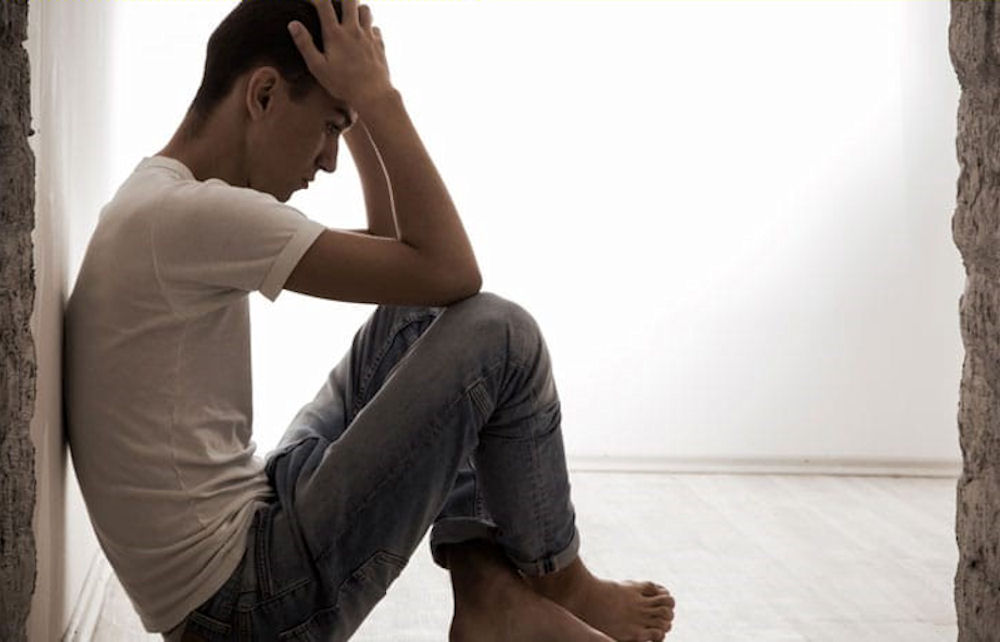Vicodin Detox in Missouri
Vicodin is a type of brand-name opioid that is a combination of hydrocodone and acetaminophen. Hydrocodone is a prescription narcotic, while acetaminophen isn’t a narcotic. Vicodin acts as a powerful painkiller.
Its pain-blocking properties can make this drug life-changing for people in both positive and negative ways. While Vicodin helps people with medical conditions, this drug is sometimes used in harmful ways, such as illicit abuse. Using Vicodin without medical supervision or recommendation can lead to the development of a Vicodin addiction. As a result, individuals who suffer from this type of addiction will need to go through a professional vicodin detox process.
At Sana Lake Recovery in Missouri, we offer medical detox and treatment services to help people suffering from Vicodin addiction safely go through the recovery process. If you are currently struggling with drug abuse, we can help you today.
What Is a Vicodin Addiction?
 A Vicodin addiction is when a person cannot function without using Vicodin. Dependency and addiction are different. However, a person suffering from an addiction to Vicodin can have a chemical dependency.
A Vicodin addiction is when a person cannot function without using Vicodin. Dependency and addiction are different. However, a person suffering from an addiction to Vicodin can have a chemical dependency.
Addiction means that an individual ignores the consequences of harm that could come with a substance use disorder. They may forgo eating, paying rent, and even taking care of their children when this happens. When a person suffers from a Vicodin use disorder, they may start to feel withdrawal symptoms hours after their last dose.
Dependency and tolerance can be less severe than substance use disorders. During detox, members at Sana Lake may feel psychological and physical withdrawal symptoms for anywhere from a week up to two weeks. However, it can last longer than this depending on the severity of the case.
Signs and Symptoms of Vicodin Addiction
 It’s not always easy to tell when you or a loved one has slipped into a substance use disorder. Common symptoms and signs of a Vicodin addiction include the following:
It’s not always easy to tell when you or a loved one has slipped into a substance use disorder. Common symptoms and signs of a Vicodin addiction include the following:
- Ignoring responsibilities
- A drastic change in appearance
- Disregard for personal hygiene
- Poor school and work performance
- A sudden desire for privacy and isolation
- Defensiveness when confronted about Vicodin use
- Increased physical tolerance for Vicodin
- Asking for money for vague reasons
- Appetite changes
- Financial issues
- Lack of energy
More signs of Vicodin use disorder include the following:
- Taking Vicodin longer than a doctor prescribes it for
- Taking a larger dose of it than medically recommended
- Using Vicodin without a prescription
- Obtaining a Vicodin prescription by lying about symptoms
If a person begins to display any of these behaviors, it may indicate the presence of a Vicodin use problem. It is best to seek help from a professional treatment center immediately.
Treatment for Vicodin Addiction Recovery
Here at Sana Lake Recovery, we offer various types of treatment services. Our Vicodin detox center in Missouri is equipped with the resources necessary to help those suffering from different types of addiction, including prescription drug misuse. Some of the programs and services that might help individuals overcome addiction include:
- Detox
- Inpatient treatment
- Outpatient treatment
- Addiction therapy
When a person stops using a drug they have been using for a while, their bodies begin to experience withdrawal symptoms. The physical and psychological symptoms of withdrawal can be quite uncomfortable and, in some cases, life-threatening. This is why medically monitored detox services are so important. A medical detox program can help to ease withdrawal symptoms and make the detox process more comfortable.
While in a medical detox program, individuals go through drug or alcohol withdrawal under the supervision of medical and clinical professionals. This ensures safety for those going through withdrawal pain and the other symptoms that come with ending drug or alcohol use. Medically monitored detox may also involve the administering of medication to help relieve pain during withdrawal.
Individuals who wish to end their Vicodin misuse will likely experience some withdrawal symptoms. Withdrawing from substance abuse can lead to moderate to severe pain in some cases. Common symptoms of Vicodin withdrawal include the following:
- Nausea
- Anxiety
- Vomiting
- Agitation
- Excessive yawning
- Abdominal cramping
- Insomnia and other sleep-related issues
- Mood swings
- Dilated pupils
- Muscle aches
- Runny nose
- Sweating
- Diarrhea
Vicodin withdrawal symptoms can be difficult to work through. People going through Vicodin detoxification experience severe symptoms sometimes. The withdrawal process can often cause people to relapse to ease the pain.
But, with the help of a medical detox program, individuals can either detox pain-free or, at least, with minimal discomfort. Quitting cold turkey is not advisable. Medication-assisted treatment (MAT) can help make Vicodin withdrawal symptoms more bearable.
Sometimes referred to as residential treatment, inpatient treatment is an intensive approach to addiction treatment. While in a residential treatment program, individuals live at a rehabilitation center. As such, recovering individuals can receive around-the-clock care as they recover from substance use disorders.
Outpatient treatment is less intensive than residential treatment. Individuals can receive treatment while still living at home. Typically, people enter outpatient treatment after finishing an inpatient program.

Vicodin addiction treatment requires an innovative and holistic treatment approach. Detox is arguably the most important step in a lasting recovery. But substance use disorder treatment, particularly in the form of therapy, is another powerful force against the temptation of drugs and alcohol.
Therapy is a popular form of treatment in many addiction treatment centers. It can help improve mental health, help people end physical dependence on drugs and alcohol, provide psychological support, and introduce relapse prevention techniques.
Individual therapy and group therapy are the two main forms of therapy. Individual counseling takes place in a one-on-one setting, involving only a therapist and the person in recovery. Group counseling sessions involve groups of recovering individuals and one or more therapists.
Other types of therapy for substance use disorders include:
Cognitive behavioral therapy (CBT)
Cognitive behavioral therapy (CBT) is designed to stop negative behaviors in their tracks. The theory behind CBT began when an American psychiatrist, Aaron T. Beck, found that people have “automatic” thoughts. As a result, these subconscious thoughts would lead to negative emotions and self-destructive behaviors.
He dubbed these thoughts “self-talk” and decided that people could consciously use them to change negative thought patterns into positive ones. The first step was identifying these subconscious thoughts that happened before the self-destructive behavior.
The next step was to counteract a negative thought with a positive one. He would teach people how to react differently to situations that would lead to pessimistic thoughts. Members at Sana Lake use CBT techniques to turn to self-care instead of drugs and alcohol in stressful situations.
Dialectical behavior therapy (DBT)
Dialectical behavior therapy (DBT) is similar to CBT. However, it focuses more on accepting negative thoughts and emotions. A DBT therapist asks individuals to validate these thoughts and emotions. Once their feelings are validated, they can work on reacting differently to them.
This form of therapy focuses on behaviors rather than thoughts. It’s a school of thought that acknowledges life can be painful and stressful. However, the DBT philosophy believes that people have the power to choose self-care over self-destruction in response to a world that can be unfair at times.
Family therapy
Addiction has very serious effects on the individuals suffering from it. But, it also negatively impacts their family members. Substance use disorders can destroy family relationships and cause many unforeseen challenges to arise. But, fortunately, family therapy can help mend families who are dealing with the effects of addiction. During family therapy sessions, the entire family unit can heal.

Paying for Addiction Treatment
Often, the financial aspect of rehabilitation hinders people from getting the help they need. However, treatment costs should not stand between you and the addiction-free life you deserve. If you have health insurance, you may be able to receive partial or full coverage for addiction treatment.
You can simply reach out to us here at Sana Lake Recovery to work through the details of your health insurance plan. Your insurance may cover detox services here at our treatment facility. We will work with you to navigate your insurance plan so you can focus on your recovery.
Undergo Vicodin Detox Addiction at Sana Lake
Suffering from a substance use disorder is challenging. It’s especially difficult to reach out for help when you find that you need it. But, you do not have to fight substance abuse alone. We are here to help you! You don’t have to let Vicodin addiction control your life any longer. Freedom is only a phone call away.
If you are seeking treatment and Vicodin detox services, reach out to our team here at Sana Lake Recovery today. We will work to help you safely work through Vicodin withdrawal symptoms and begin healing from your substance use disorder.
Addiction doesn’t have to be a part of your story any longer. You have the power to change the narrative of your life. Through addiction treatment, you can finally live beyond substance dependence. If you’re ready to stop taking Vicodin, speak with your doctor immediately. They may point you toward professional substance use disorder treatment.
It’s time to take back your mental health and end substance misuse. Let the medical professionals and addiction specialists at Sana Lake Recovery help you today.



